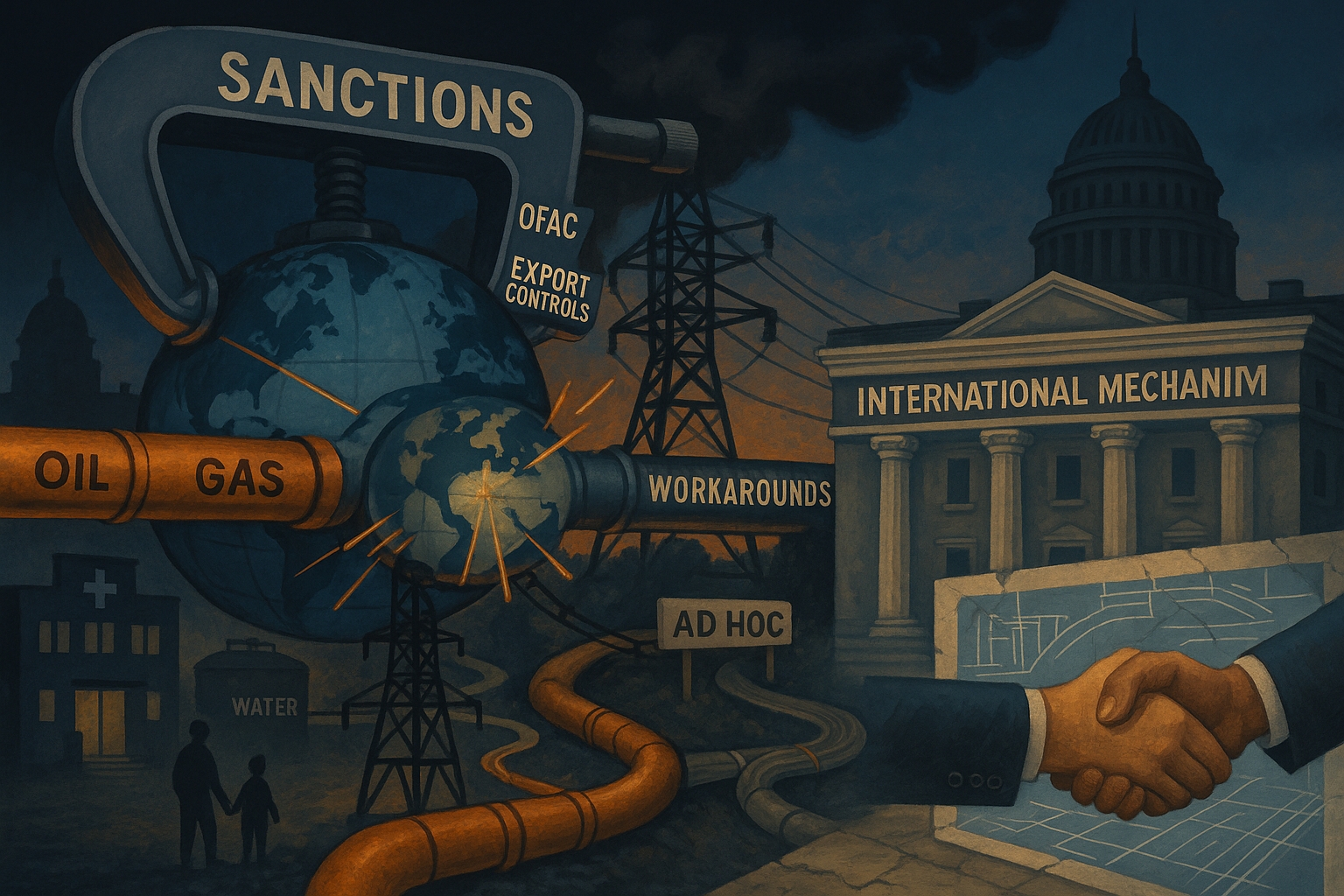



 Waseem Shehzad
Waseem Shehzad
From pipelines to power grids, the American sanctions architecture does not merely target designated entities; it indiscriminately harms civilian society, critical infrastructure and forces neighboring states into costly economic and political workarounds.
Weapons of mass economic destruction have become Washington’s last potent lever to sustain its illegitimate imperial hegemony.
As empires decline, they grow more vicious. America’s political class will deploy these instruments regardless of who is in the White House.
Affected states must urgently establish a formal international mechanism to confront this weapon of mass economic destruction. Sanctions cannot be managed on an ad hoc basis.
Two recent cases illustrate why ad hoc fixes are, at best, temporary.
Iran completed its segment of the Iran–Pakistan gas pipeline years ago. Yet in 2024, Islamabad authorized only a token 80-km stretch under threat of penalties, even as the US warned of secondary sanctions.
In Iraq, US restrictions on payments left billions in arrears for Iranian gas and power, prompting periodic supply cuts and improvised workarounds. Baghdad’s medium-term answer has been to rewire the grid: new interconnections with Jordan (and, via Jordan, with Egypt) alongside a GCC link, all designed to dilute exposure to sanctions chokepoints.
These types of frictions are structural, not episodic.
Waivers, barter deals, and one-off exemptions will not suffice. What is required is a formal coalition of affected and concerned states—able to clear payments through neutral channels, guarantee transactions and arbitrate disputes. That is now a practical necessity, not a slogan.
The decisive precondition for an institutionalized harm-reduction architecture against US sanctions is political will. But political will does not mean a top-down decree. It requires building a system that steadily nudges society toward mechanisms that render American sanctions ineffective—wider use of non-dollar settlements, deeper South–South trade and interlinked infrastructure projects.
Still, societal nudges on their own are not sufficient—just as proclamations from above are not sufficient. Both tracks must run in tandem: bottom-up adoption by firms and consumers, and top-down codification through law, central-banks and standardized business practices.
Only the combination of social practice and state capacity can neutralize the American weapon of mass economic destruction in a durable and comprehensive way.
At present, many political and economic commentators wrongly treat BRICS as the platform that will, by itself, break American economic leverage.
BRICS can be a useful component, but it is not sufficient.
What is required is a specialized institution—compact, hybrid, and execution-focused—that can translate hard statistical data and real-time business trends into concrete, operational policy without bureaucratic red tape.
Such an institution would fuse the roles of a statistical observatory, policy lab, and transaction enabler—setting standards, providing risk-sharing mechanisms, and logistics rails that are sanctions-resilient. Its purpose would be to revolutionize trade and economic interconnectivity across the Global South, much as the tactical use of drones transformed the conduct of contemporary warfare.
For this to succeed, cultural shifts inside ministries and state-owned enterprises are essential. Competent, cross-functional teams must be granted real autonomy—so they can learn from bounded mistakes rather than wait indefinitely for “green lights” from senior offices.
Naturally, countries such as Iran, Venezuela, and Russia have a direct stake in establishing an international organization dedicated to reducing the harm of American sanctions. Yet they are not alone.
A number of states rarely foregrounded in media coverage—Senegal, Chad, Niger, Mali, and Burkina Faso—also have compelling incentives, having recently demonstrated political backbone by curtailing or ending western military footprints on their soil. Because political will is the decisive ingredient for such an institution, admission should hinge on demonstrable resolve rather than rhetoric: concrete steps to assert sovereignty, resist coercion, and realign security and economic partnerships. This is why the listed African countries should not be dismissed as minor players.
In short, political backbone should be a core eligibility criterion, not an afterthought and this is where the BRICS falls short.
The political caste in China, Brazil and India are yet to demonstrate a serious desire in pursuing real economic sovereignty which is not tied to American economic and political institutions.
No doubt, building such an institution will be difficult and costly in the short term—politically and economically.
Realistically, the US remains the single most powerful actor in the global economy. Yet judged against where the world stands today, there has been no better moment to begin dismantling the US-centric order.
By standard markers—PPP output and trade weight of the Global South, the concentration of critical commodities (energy, fertilizers, rare metals) outside the G7, the rise of non-dollar settlements, and the rapid growth of South–South commerce—the structural gravity is already in the process of shifting.
Crucially, the hardest political work—proving that US economic hegemony is dangerous for the wider world—has already been done, ironically, by Donald Trump. Even long-standing vassals of US imperialism have felt the pain of American economic hegemony and are recalibrating accordingly.
The unwinding of American economic primacy is, at base, a normal market correction.
In microeconomics, concentration approaching monopoly enables abuse; diversification disciplines it and broadens welfare.
The same logic holds system-wide: a global economy organized around multiple powerhouse centers of capital, production, and technology reduces coercive leverage, spreads risk and benefits the wider market.
Ending American economic hegemony is the natural outcome of restoring balance and contestability to the international economic system. All general parameters are now falling in place, but without a concrete institution in place implementing practical steps to re-centre the global economy in a practical manner, the momentum may fade away.
